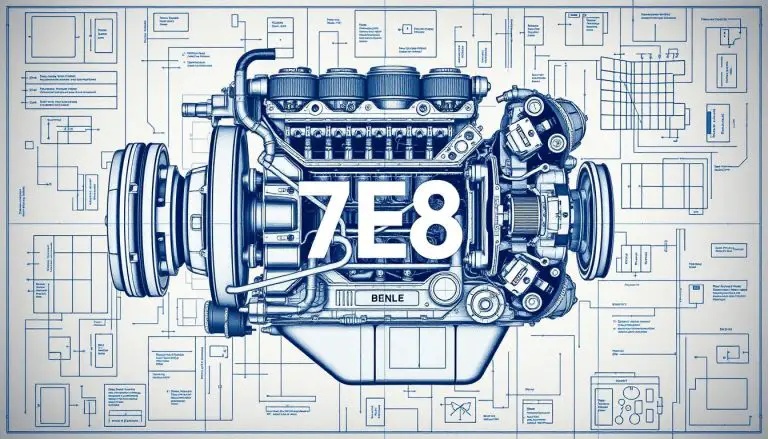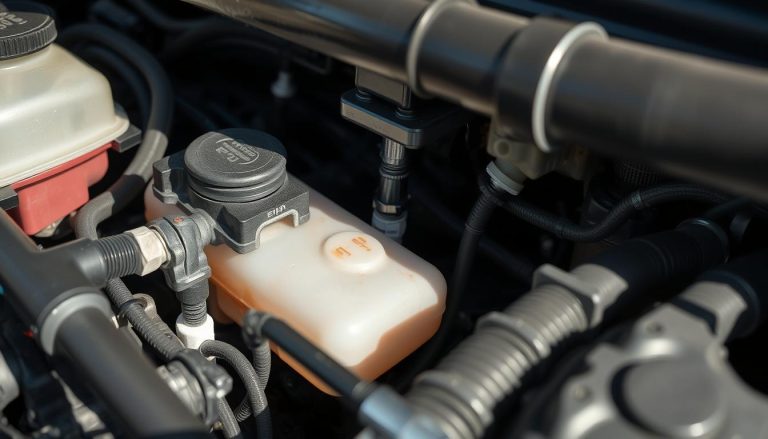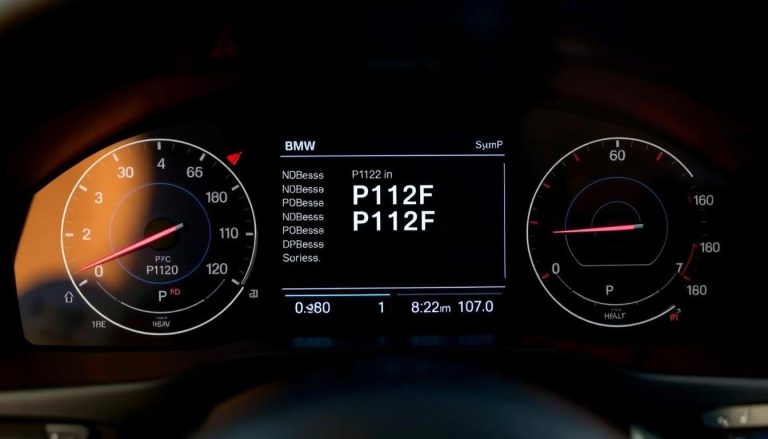When your check engine light illuminates, among the myriad of trouble codes that might pop up, one that stands out is the P0169 code—indicating an incorrect fuel composition. Understanding this code is crucial for keeping your vehicle running smoothly and efficiently.
In this guide, we’ll dive into what the P0169 code means, its symptoms, potential causes, and how you can tackle it head-on.
Key Takeaway
The P0169 code is a signal that your vehicle’s fuel composition doesn’t meet the required standards. This issue can lead to poor engine performance and increased emissions.
Understanding this code is essential for effective troubleshooting. Ignoring it might result in more severe engine problems down the line, so keeping an eye on those diagnostics is key.
Addressing the P0169 code promptly not only helps maintain your car’s health but also enhances its efficiency. By recognizing symptoms early, you can avoid costly repairs later on.
Stay informed about your vehicle’s codes and don’t hesitate to seek professional help when needed. Taking proactive measures ensures a smoother ride for you and extends your car’s lifespan.
What does the P0169 code mean?
The P0169 code signals an issue with the fuel composition in your vehicle. Specifically, it indicates that the engine control module (ECM) has detected an incorrect mixture of air and fuel.
This code typically arises when the ECM interprets a discrepancy between expected and actual values from various sensors related to fuel delivery. It’s like receiving a warning that your car isn’t getting the right recipe for efficient combustion.
When this occurs, it can lead to poor engine performance and increased emissions. The system relies heavily on accurate data from several components, including oxygen sensors and mass airflow sensors.
If left unaddressed, problems could escalate, affecting not just performance but also overall vehicle health. Understanding what P0169 means is crucial for diagnosing potential issues before they become more serious concerns.
What are the common symptoms of a P0169 code?
When your vehicle triggers the P0169 code, it can manifest a variety of symptoms:
- Poor engine performance. This could include sluggish acceleration or stalling at stoplights.
- A rough idle, where the engine feels shaky and unsteady while stationary.
- The check engine light will likely illuminate on your dashboard.
What causes a P0169 code?
Several factors can trigger a P0169 code:
- The use of low-quality fuel. Impurities in gasoline or diesel can lead to incorrect fuel composition, affecting engine performance.
- A malfunctioning oxygen sensor. This component monitors the air-fuel mixture entering the engine. If it fails, the system may receive inaccurate data, causing miscalculations in fuel delivery.
- Defective fuel composition/temperature sensor
- Open, shorted, or damaged wiring or connectors
- PCM or PCM programming error
How is a P0169 code diagnosed?
Diagnosing a P0169 code requires a systematic approach. Mechanics typically start with an OBD-II scanner to read the trouble codes stored in the vehicle’s computer system.
Once they access the live data, it helps them understand how fuel composition affects engine performance. They’ll pay close attention to parameters like oxygen sensor readings and fuel trim values.
Next, visual inspections are crucial. Technicians check for any vacuum leaks or damaged hoses that might distort air-fuel ratios. Fuel quality is evaluated as well; poor-quality gasoline can trigger misleading codes.
Testing individual components like the oxygen sensors may follow. This step ensures that all related parts function correctly and align with manufacturer specifications.
Throughout this process, mechanics often refer to service manuals tailored for specific makes and models, ensuring accuracy in diagnosis before proceeding with repairs.
Is the P0169 code specific to certain car makes or models?
The P0169 code is not limited to specific car makes or models. Instead, it can appear in a variety of vehicles across different manufacturers. This means that many drivers could encounter this code regardless of their brand loyalty.
That said, some vehicle types might be more prone to this issue due to their design and fuel management systems. For instance, older models with less sophisticated sensors may experience incorrect fuel composition errors more frequently.
It’s essential for car owners to familiarize themselves with the potential issues related to their particular make and model. Even if the P0169 code isn’t common for your vehicle type, understanding its implications can help prevent further damage down the road.
Can I continue driving with the P0169 code?
Driving with a P0169 code is not advisable. This trouble code indicates an incorrect fuel composition, which can lead to poor engine performance.
You might notice decreased power and efficiency. Ignoring the issue may result in further damage to your vehicle’s engine or fuel system components.
While you could technically continue driving, it’s risky. The longer you operate your vehicle under these conditions, the more likely you are to encounter severe issues down the line.
If warning lights illuminate on your dashboard alongside this code, it’s best to address it promptly. Delaying repairs can escalate costs and complicate your vehicle’s overall health.
Always prioritize safety and reliability when it comes to automotive troubles like a P0169 code. Consider seeking professional assistance if you’re unsure about how serious the situation is or what steps to take next.
How do I fix a P0169 – Incorrect Fuel Composition ?
Fixing a P0169 code involves several steps. Start with a thorough inspection of the fuel system. Check for any leaks or blockages in fuel lines, as these can significantly affect composition.
Next, examine your fuel injectors. Dirty or malfunctioning injectors may not deliver the correct amount of fuel, leading to an improper mixture. Cleaning them might solve the issue; however, replacement could be necessary if they are damaged.
Don’t forget about the oxygen sensors. They play a crucial role in monitoring and adjusting air-fuel ratios. If they’re faulty, replacing them can help restore proper engine function.
Consider using high-quality fuel to avoid contamination issues that contribute to incorrect compositions. After making these adjustments, clear any error codes and run a diagnostic test again to ensure everything is working as it should.
How much does it cost to fix a P0169 code?
The cost to fix a P0169 code can vary widely depending on several factors. On average, you might expect to spend between $100 and $500 for repairs. This range often includes diagnostic fees, parts replacement, and labor costs.
If the issue is simply a faulty sensor or wiring problem, repairs could be on the lower end of that spectrum. However, if deeper issues are identified—like fuel system problems—the expenses can escalate quickly.
Labor rates differ by region as well. In some areas, mechanics charge more per hour than in others. Always consider getting multiple quotes from trusted repair shops.
Don’t forget about potential additional diagnostics required before fixing the primary problem associated with this code. These extra steps can add to your total bill but are essential for ensuring thorough repairs.
Are there any other codes that may be related to a P0169 code?
When dealing with the P0169 code, it’s important to be aware that other diagnostic trouble codes may present alongside it. These related codes can provide additional insights into potential issues within your vehicle’s fuel system or engine performance.
Commonly associated codes include P0170 (Fuel Trim Malfunction), P0171 (System Too Lean), and P0172 (System Too Rich). Each of these codes offers a different perspective on how your engine is handling fuel composition. They could indicate problems with air-fuel mixture regulation, sensor malfunctions, or even exhaust leaks.
Understanding these associated codes can help you pinpoint the specific problem affecting your vehicle. If you notice multiple DTCs triggering simultaneously, addressing them holistically will often result in a more effective repair strategy.
Being proactive about diagnosing and fixing any related issues not only enhances your vehicle’s performance but also extends its lifespan. Always consult with a professional mechanic if you’re unsure about interpreting these codes or require assistance in making repairs.


